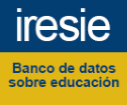Project-based learning for the teaching-active learning process of the Shuar mother language
Keywords:
PBL Project, teaching, language, intercultural, IdentityAbstract
Linguistic diversity is a cultural treasure that enriches the identity of existing nationalities around the world. Project-Based Learning (PBL) is chosen as an essential pedagogical strategy for the enrichment of the active teaching-learning process of the Shuar mother tongue. Focused on significant and contextually relevant projects, this approach seeks to preserve the cultural and linguistic identity of the Shuar nationality in the Amazon region. Some notable authors who have addressed the importance of PBL in intercultural education include Thomas and Smith. Thomas, in his work "Teaching Culture and Language: A Multicultural Introduction", highlights the need to integrate PBL to strengthen the connection between teaching and cultural diversity. Smith, in "Decolonizing Methodologies: Research and Indigenous Peoples," provides critical perspectives on educational methods that respect indigenous identities. The implementation of PBL in the teaching of Shuar follows a structured process that involves everything from project identification to presentation and sharing, promoting the active participation of students and their cultural roots. This approach not only contributes to the preservation of the Shuar language, but also promotes the comprehensive development of linguistic and cultural skills in the contemporary educational field.









